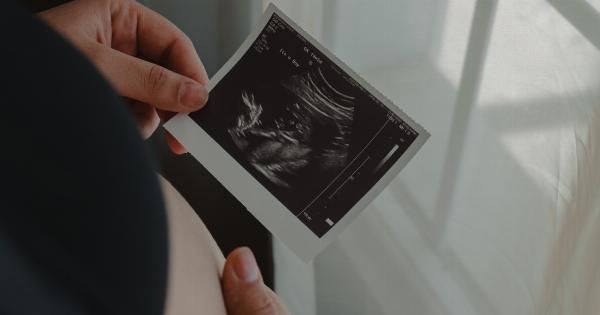Pregnancy is a thrilling and life-changing experience for any woman. However, it also demands extra caution and care in terms of the mother’s lifestyle and diet.
One aspect that has garnered much attention in recent years is alcohol consumption during pregnancy. While some women might continue to relish a glass of wine or a cocktail during the nine months, it’s essential to understand the dangers and consequences of doing so.
This article explores the connection between alcohol and pregnancy, why you should avoid it, and its impact on fetal development and maternal health.
What Happens When You Drink Alcohol During Pregnancy?
Alcohol consumption during pregnancy leads to Fetal Alcohol Syndrome (FAS) in some infants. FAS is a group of physical and mental anomalies that occur in an infant whose mother drinks heavily during pregnancy.
The condition is irreversible and can have lifelong effects on the child and their future. The severity of FAS varies from person to person. While some symptoms might be mild, others can be debilitating.
The Effects of Fetal Alcohol Syndrome
Infants with FAS often face challenges in everyday life. They usually have issues with socializing and might have trouble achieving and maintaining friendships.
Additionally, they exhibit behavioral issues that might hinder them academically and professionally. Other characteristic features of FAS include distinctive facial characteristics, slow growth, and cognitive impairment. In severe cases, infants may have abnormalities in their central nervous system, heart, and skeletal structure.
The Stages Of Fetal Alcohol Syndrome
The effects of FAS depend on the stage of fetal development at which alcohol consumption takes place. Prenatal alcohol exposure, especially early in pregnancy when crucial organs like the brain and heart are developing, is the most harmful.
Alcohol-related developmental defects in infants are categorized into three stages – alcohol-related birth defects (ARBD), Alcohol-Related Neurodevelopmental Disorder (ARND), and Fetal Alcohol Syndrome (FAS).
Alcohol-related birth defects (ARBD)
ARBD refers to physical deformities and disorders caused by fetal exposure to alcohol during pregnancy.These include congenital heart defects, skeletal deformities, and hearing or vision problems, among others.
Alcohol-Related Neurodevelopmental Disorder (ARND)
ARND encompasses brain-related anomalies caused by fetal exposure to alcohol. These impairments might not be physically obvious like ARBD but can lead to lifelong behavioral and cognitive problems. Children with ARND often have difficulties with learning, memory, and attention.They may also face challenges with decision-making and social interaction.
Fetal Alcohol Syndrome (FAS)
FAS is the most severe of the three. The results of alcohol exposure during this stage lead to a combination of physical and mental anomalies. Infants with FAS usually present with a distinctive facial appearance, cognitive impairments, and growth retardation.
They may also experience organ damage and other congenital defects.
What is Safe to Drink During Pregnancy?
Pregnant women are advised to avoid alcohol altogether. If you are unsure of what is safe to sip, sticking to water, natural fruit juices, and other healthy beverages like lemonade or ginger beer is a great alternative.
You can also talk to your doctor on healthy fluids to take. When it comes to non-alcoholic drinks, moderation is still essential. Beverages with high sugar content or caffeine, like soda, should be taken in moderation.
Why Pregnant Women Should Avoid Alcohol
It is safer to skip alcohol during pregnancy as experts remain unsure about the safe amount that pregnant women can consume.
The American College of Obstetricians and Gynecologists (ACOG) and the U.S Centre for Disease Control and Prevention (CDC) advise that pregnant women should avoid alcohol entirely. The National Institute on Alcohol Abuse and Alcoholism (NIAAA) maintains that there is no known safe amount of alcohol that women should consume during pregnancy.
While some studies suggest that moderate consumption is safe, the risks to fetal development and maternal health cannot be ignored. Because of this, it’s best to avoid alcohol altogether once you become pregnant.
Alcohol and Breastfeeding
Experts advise lactating mothers to limit their alcohol intake when breastfeeding their infants. Alcohol consumed by the mother will pass on to the nursing baby through breast milk.
Therefore, avoiding drinking alcohol during the days of breastfeeding or at most, consuming in moderation is advisable. Some mothers who drink excessively may also notice that their milk production decreases.
Conclusion
Pregnancy is a critical period, both for the mother and the unborn child. Drinking alcohol during this period can lead to severe, lifelong consequences for the child.
For this reason, it is recommended that pregnant women avoid alcohol entirely and seek out healthy beverages like water and fruit juices. Breastfeeding mothers should also be cautious about their alcohol intake to prevent their infants from exposure to it through breast milk. It’s also essential to talk to your doctor for professional guidance on how to have a healthy pregnancy.






























